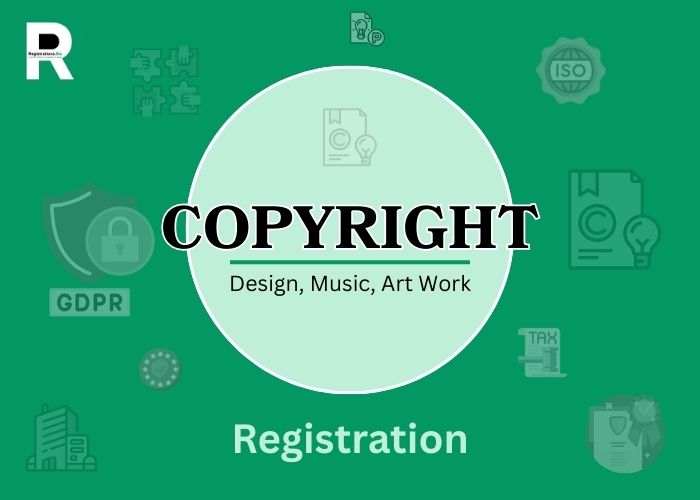Subtotal: ₹9,999.00
Copyright Registration
₹19,999.00
Copyright registration is the official process that gives the person who made an original work in India the only right to copy, share, and show their work in public.
Read More
Description
Copyright registration is the official process that gives the person who made an original work in India the only right to copy, share, and show their work in public. The Copyright Act of 1957 controls the filing of titles. The Copyright Office, which is part of the Ministry of Commerce and Industry’s Department of Industrial Policy and Promotion (DIPP), is in charge of these works. Filing your copyright is unnecessary, but it’s a good idea because it gives you legal proof of ownership, exclusive rights, and security against copying for at least 60 years. To register, you have to fill out an application and pay the fees, then wait for results and finally register. You can get a copyright for written works, audio works, visual works, pictures, sound files, computer programs, tables, and compilations.
There are six groups in the Register of Copyrights: 1. Literary works that aren’t computer programs; 2. Musical works; 3. Artistic works; 4. Films and music records; and 5. Computer tools, lists, and collections. The Copyright Act of 1957 protects moral, economic, and local rights. An individual’s moral rights encompass the need for proper respect, honesty, and privacy, while their economic rights encompass the freedom to copy, share, and publicly show the work. Local rights include the rights of artists, makers, and speakers.
The Copyright Board was formed under Section 11 of the Copyright Act of 1957 to help settle copyright problems and record books and other works of art. The Copyright Act of 1957 also allows for the creation of a copyright board to help in solving copyright problems and recording books and other works of authors. The Copyright Board was formed under Section 11 of the Copyright Act of 1957.

 Music Copyright
Music Copyright 




Reviews
There are no reviews yet.